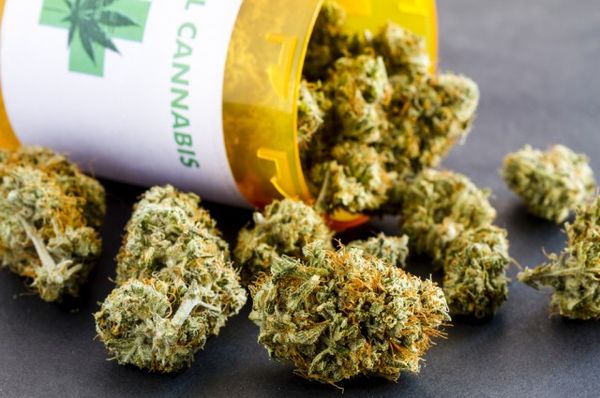- The German government has announced that it will legalise the use of cannabis for medicinal purposes by 2017. The proposal was approved by the German cabinet on Monday and will allow doctors to prescribe marijuana and cannabis extract to seriously ill patients only, provided that there is no other alternative available. However, the news is by no means paving the way for the progressive legalisation of cannabis use in the country, or at least that is what the German authorities have wanted to make clear.

“Our objective is for seriously ill people to get the best possible care”. These are the words of German Health Minister Hermann Gröhe, who was tasked with announcing via a press release that 2017 will see Germany join the list of countries that allow the use of cannabis for therapeutic purposes, which includes those as far afield as Canada and Israel.
The use of cannabis for medicinal purposes is nothing new in Germany. Currently, the Federal Institute for Drugs and Medical Devices can issue a specific permit which allows some patients to obtain marijuana for medicinal purposes at the pharmacy. However, this permit is heavily restricted and there are barely more than five hundred users who have such authorisation in the whole of Germany today. The Federal Institute for Drugs and Medical Devices is also in charge of regulating homegrown cannabis, which is prohibited unless it is for medicinal purposes and the grower has been authorised by the organisation to do so. In fact, selling seeds in Germany is an offence which is similar to selling marijuana if the grower has not been licensed to grow cannabis at home by the Federal Institute for Drugs and Medical Devices.
Although the new legislation does not cover homegrown cannabis, it does mean that patients will no longer have to obtain this permit in order acquire marijuana and doctors will be responsible for deciding who they prescribe it to, provided that the patient meets the requirements that are in place, i.e. they must have a very serious illness and there must be no alternative available through conventional medicine. Furthermore, while patients have been paying for cannabis out of their own pockets until now, the new law will make it mandatory for insurance companies to pay out for cannabis treatment that has been prescribed by a doctor from 2017 onwards.

This part is particularly important because until now, patients suffering from very serious conditions such as cancer, AIDS, Parkinson´s disease and multiple sclerosis have only been able to get hold of cannabis with a special permit and they have had to pay for it themselves. According to the government bill, the average cost of authorised cannabis treatments is around €500 per month, and this can even reach €1800 in particularly severe cases. In order to cope with the demand from patients, Germany imported 94kg last year. The majority of this came from the Netherlands, at an average price of €18/g. The German government is already creating specially controlled plantations for growing cannabis and will import what it needs for the time being.
In any event, it appears that the German government has no intention of following Canada´s example by taking further steps towards the progressive legalisation of cannabis. On the contrary, its spokesman Steffen Seibert has wanted to make it clear that there is no intention of legalising this substance in the short to medium term, adding that medicinal use must take place with “strict limits” and studies that support such use must have been carried out. Meanwhile, the German government´s Drug Commissioner Marlene Mortler warned that cannabis is not a harmless substance, and completely rejected the possibility of legalising it for recreational purposes. She stated that this new legislation is intended to “take advantage of the potential of cannabis without endangering the health of citizens”, going on to add that it was a “modern health and pharmacy policy”.
Not only do the new measures cover the issue of supplying marijuana to patients, but they also call for the promotion of scientific studies into the therapeutic benefits of these treatments which will involve actual users.
At Dinafem, we have seen first hand how there is an interest in marijuana in Germany. In fact, in recent months we have been visited by two media organisations who are interested in our processes for creating seeds and the potential therapeutic properties of the new high-CBD strains that we have launched this year.
The situation of cannabis in Europe
Although the news that the consumption of cannabis for therapeutic purposes in Germany is becoming more flexible could been seen as a move towards the regulations that are currently in place in America, the truth is that Europe still has a long way to go to reach that situation. In fact, unlike in other countries, the debate surrounding the legalisation of marijuana has not yet been thoroughly explored in the public arena and is instead limited to specific circles or one-off declarations from politicians. In Spain for example, political parties such as Podemos and Ciudadanos claimed that they supported the legalisation of marijuana during the last electoral campaign but this has yet to develop into a serious debate, even though associations such as Regulación Responsable are optimistic (enlace a artículo RR).
There is also a huge disparity between the regulations of each country, which means that the possibility of establishing a single policy still seems a long way off. Everything indicates that medicinal cannabis will be the route that European countries will progressively be taking, but legalisation remains a remote prospect.



Comments from our readers
There are no comments yet. Would you like to be the first?
Leave a comment!Did you like this post?
Your opinion about our seeds is very important to us and can help other users a lot (your email address won't be made public).